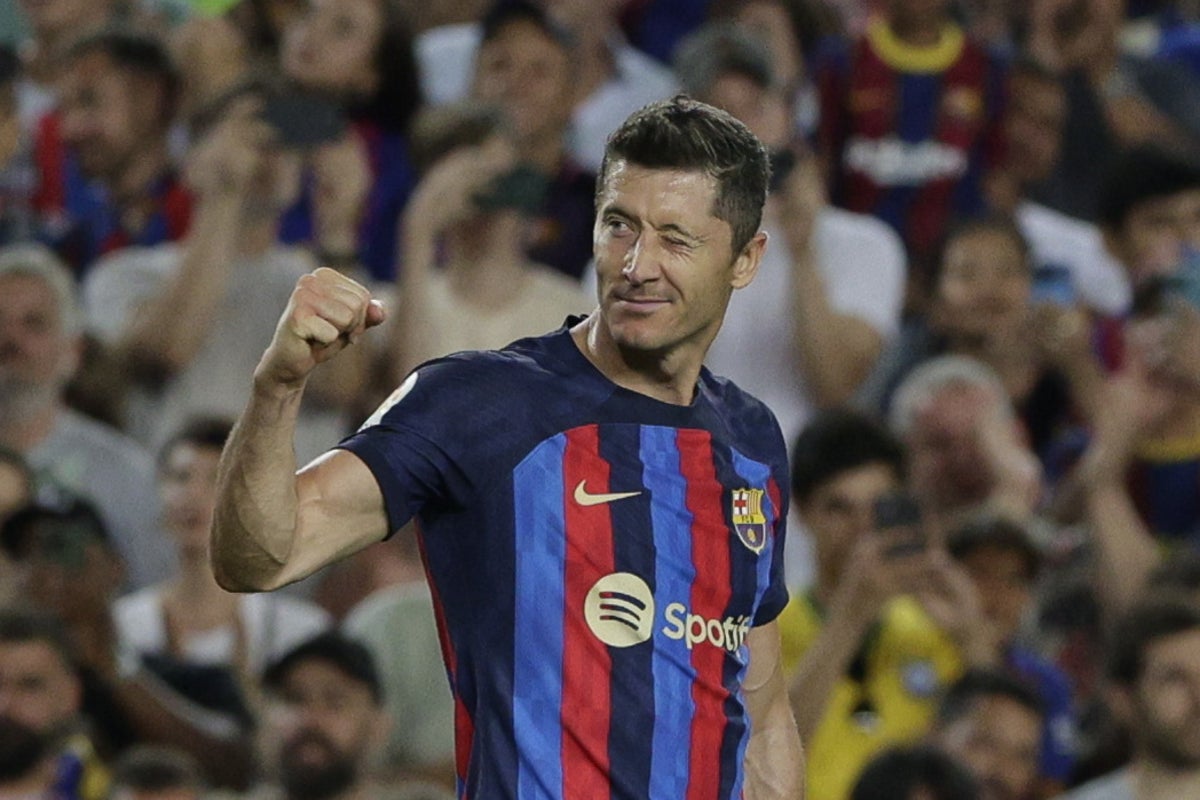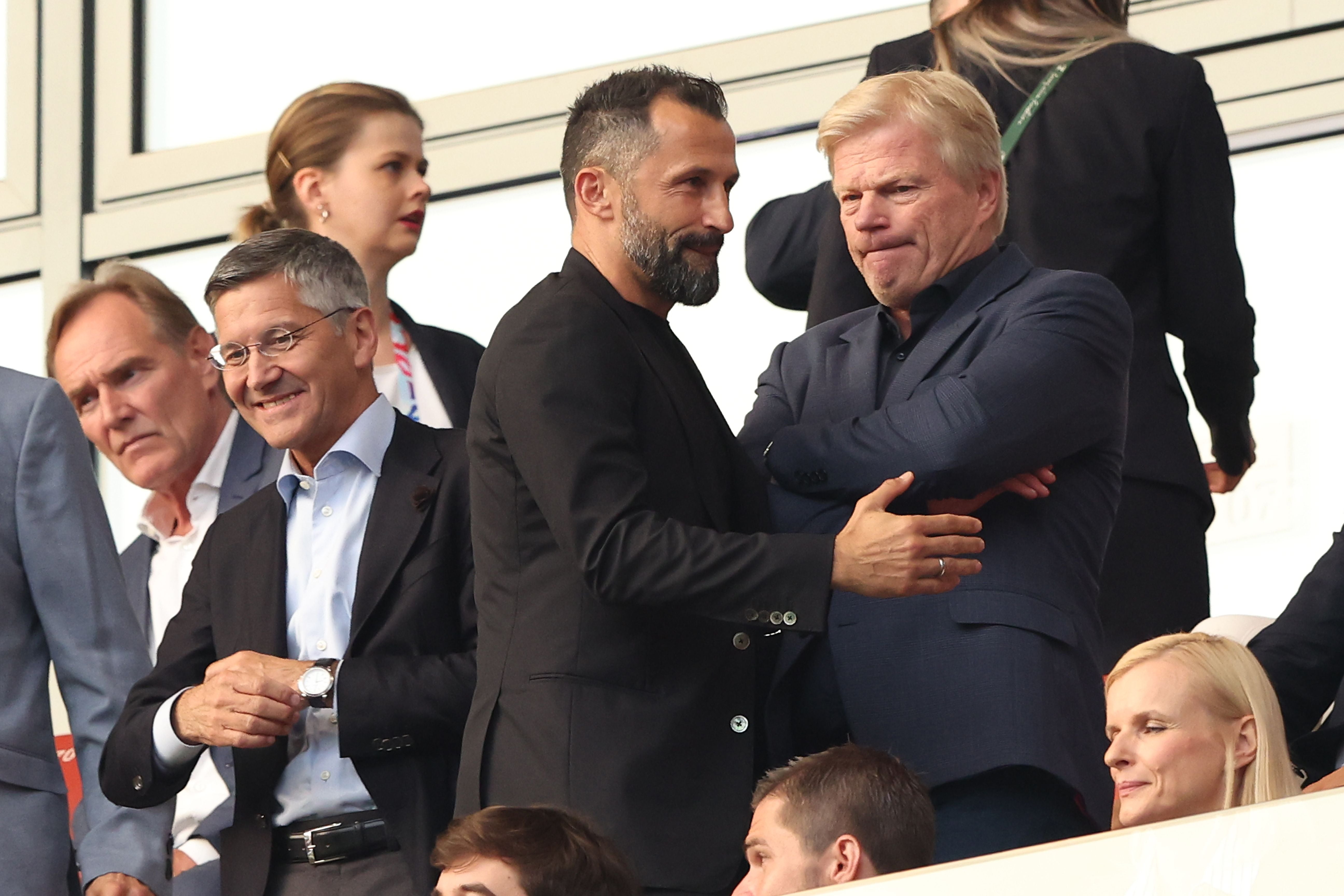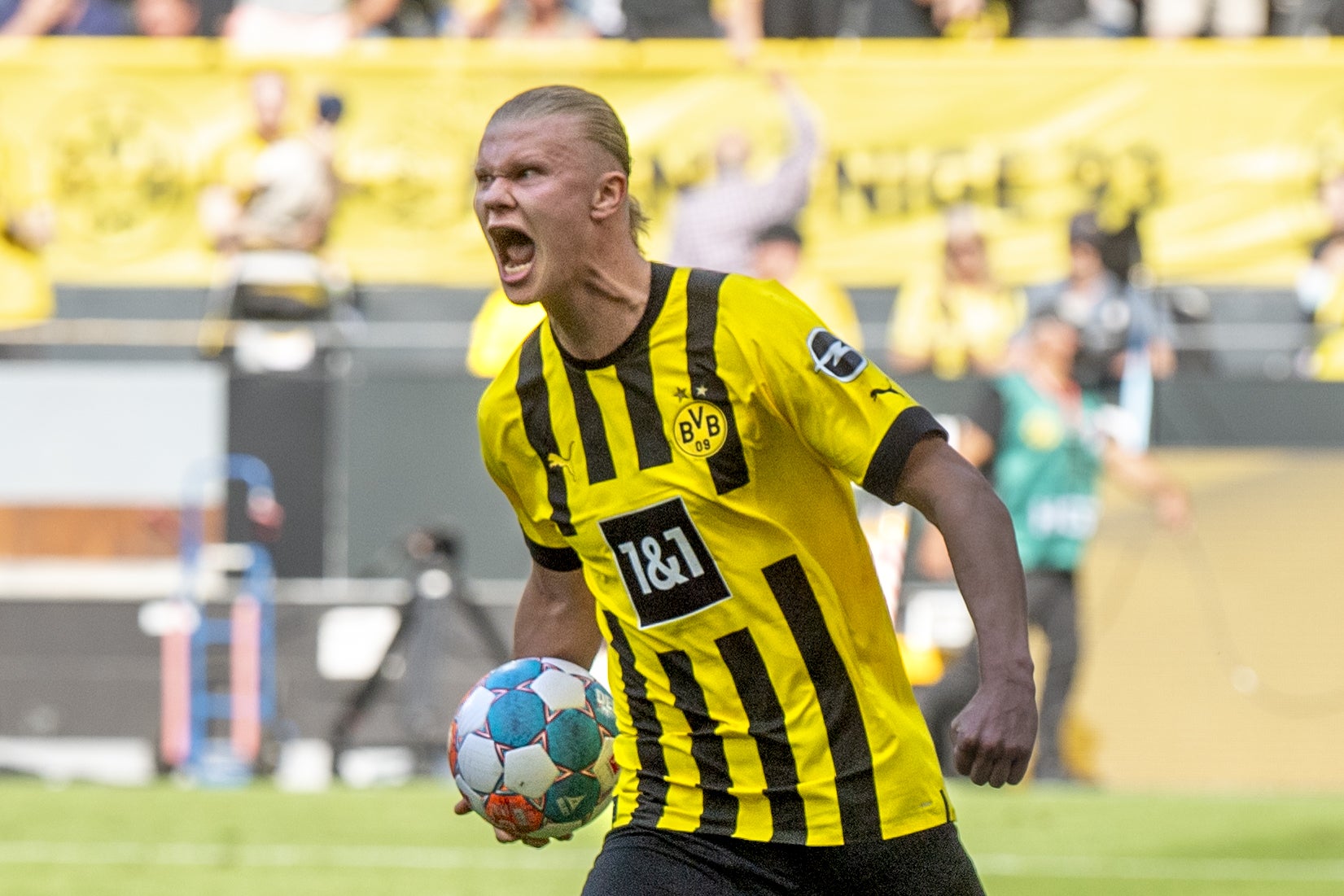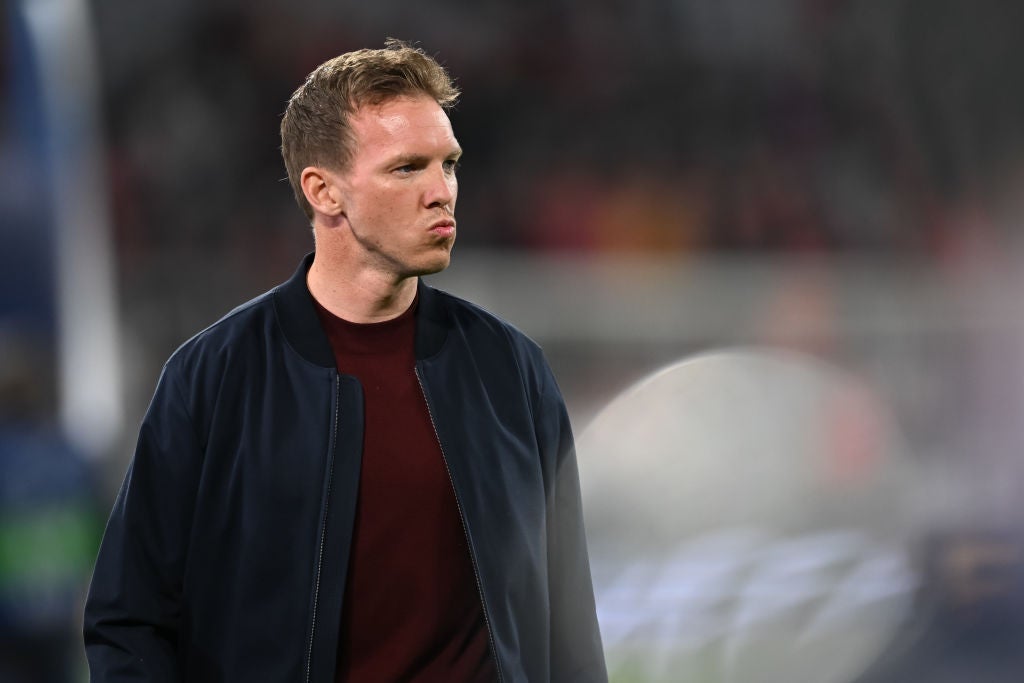
The sight of Robert Lewandowski in a Barcelona jersey is going to irritate a few watching down from the Bayern Munich executive box on Wednesday, but not because he wanted to leave the Allianz. The German champions happily accepted the striker’s desire for a new challenge, but weren’t quite so keen on the manner Barcelona had done business this summer. It was one reason the transfer was so protracted. Bayern wanted the entirety of the €50m up front. They got it, but there remains a residual feeling that the way the Bundesliga club do things is better for the general health of the game. Barca, it could be perceived, have been responsible for an approach that breeds chaos and inflates the entire market.
It has still had short-term effect, which was part of the point. Barca go into this unusually important group game on the back of five straight wins, with the side having seemingly clicked under Xavi Hernandez. Bayern have meanwhile had their worst start to a domestic season in 11 years, after three straight draws.
It's quite a turnaround from the short-term history of this fixture, and how many times Bayern have humbled the Catalan side. They have almost served to show how far Barca are off the top. Barca now consider themselves back there, through one ostentatious summer. Bayern look there for the taking.
Some of that is obvious readjustment after the departure of someone as important as Lewandowski. Some of it is coincidence. Some of it was just chaos in individual games, like the manner Matthijs de Ligt gave away a penalty at the end of Saturday’s 2-2 draw with Stuttgart.
But, for certain figures involved, it is a translation of issues at the top of the club that are beginning to filter down.
While it’s clearly far too early to say that Bayern won’t win the title at a canter, or that they are suffering from the same kind of complacency that Juventus did after so long at top, the repeat German champions are undergoing the same kind of change that can destabilise even the strongest structures. This can be how empires fall.
Karl-Heinz Rummenigge and Uli Hoeness had a lot of faults but, not unlike Sir Alex Ferguson at Manchester United, they knew exactly how to run Bayern. They just didn’t know what to do next, and there are now increasing questions within the game about their choice of replacements.

Both chief executive Oliver Kahn and sporting director Hasan Salihamidzic are in such roles for the first time in their careers.
And while many say that Kahn may end up proving adept, figures at other clubs aren’t quite so charitable towards Salihamidzic. Neither are some of those within Bayern.
He is seen as being one of the primary causes for Hansi Flick’s departure.
Other sources go further. “He tries to be authoritative without having the authority,” one figures says. “He has caused, for the first time in modern Bayern, a break between the management and the hierarchy… the club is a tinder box."
They weren’t quite ready to explode on the transfer market, mind. One club, that went about business in a very different way to Barcelona, were staggered when they were left waiting weeks for a Bayern response. They couldn’t believe the “arrogance”.
There have been more questions about their general market dealings, meanwhile, with so much following on from a failure to make a decision on Lewandowski in 2020.
Although the Pole wanted to go after winning the Champions League, Bayern delayed, and essentially a lost momentum that had been growing with Erling Haaland. There was a feeling as recently as mid-2021 that favoured Munich. The discussions were certainly positive.
And while they have got a world-class replacement in Sadio Mane, he is a different sort of player, in a different kind of team.

Bayern had briefly attempted to go for more expensive buys, such as Lucas Hernandez, Benjamin Pavard, Matthijs de Ligt and Dayot Upamecano, but they have been nowhere near as successful as their more astute purchases such as Alphonso Davies and the effervescent Jamal Musiala.
Upamecano and De Ligt have provoked more questions than answers at the centre of defence. Upamecano has struggled under pressure, De Ligt has just struggled in the system.
It doesn’t help that, even though Julian Nagelsmann is generally seen as a tactical genius, there is a growing belief that he is a Pep Guardiola successor in one of the less helpful ways. The Catalan was constantly criticised for taking unexpected tactical decisions to show off, rather than what was necessarily best for the team. While this generally hasn’t been true, and Guardiola mostly made those moves out of pragmatism and caution, it might be a more accurate description of Nagelsmann.
Players are simultaneously wowed by what he can come up with and note a certain lack of authority.
There are a few ironies there.
Bayern have for so long been Germany’s senior institution but are now largely driven by a series of figures lacking that longer-term experience. It doesn’t help that their traditional position in the transfer market has been ended.
They are no longer just buying the best players in Germany - at once strengthening themselves while weakening their rivals - because the other clubs are selling to England for better prices. That has forced other institutional changes, and appointments of the finest recruitment specialist from other clubs.

It shouldn’t be overlooked, either, that their youth set-up is considered “phenomenal”. Even those that don’t make it to the first team are generally sold for €15-25m, creating a cycle in another way.
It is another illustration of the ructions between the short-, medium- and long-term, that this match so articulates.
At the very least, Bayern can go out and express themselves with no greater pressure about the medium-term. That isn’t quite the case for Barcelona.
They are looking good, but they kind of need to look good in the Champions League right through this season. This is precisely the risk of Joan Laporta’s high-stakes strategy. It is predicated on this Barcelona team being glamorously successful, which generally means going far in the Champions League.
That is the sort of plan that can be undone by one unlucky draw, which is pretty much what Barcelona have got. It is the one group with three giants in it, including Internazionale.
All have flaws. All have different issues in the short-, medium- and long-term. Barca, however, have the sight of Lewandowski at the top of a system that has so far worked very well for them.
It may yet create irritation at Bayern in another way.
"Many things have changed," Xavi said, of Barca's last meeting with Bayern. "Especially the mentality. The signings also improve us and the victories this season give us confidence. We’re excited and we can win this game and change history."
At least in the short-term.



.png?w=600)



